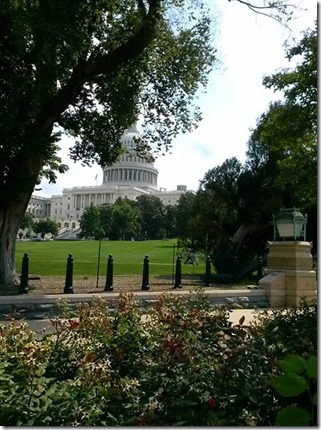Rev. Mary Spears explains the legalization vs. repeal initiatives and why REPEAL is the only way to proceed.
“I don’t want to fucking give this United States
government one fucking dollar of taxes…”
– Jack Herer, “The Emperor of Hemp”, September 12th, 2009
(Portland Hempstalk Festival–his final speech.)
http://overgrow.ning.com/profiles/blogs/the-fallacy-of-the-legalize-and-tax-cannabis-initiatives
By ElectroPig Von Fökkengrüüven in Overgrow The World v2.0
The Fallacy of the “Legalize and Tax Cannabis” initiatives.
Overgrow The World
April 21, 2010
I have listened and understood the words of the late Jack Herer, and I am amazed how few people who say they believe in what Jack was saying truly understand the real reasons why he so horrified at the idea of creating new cannabis taxes. Let me explain quickly: THEY ARE NOT NEEDED AT ALL! As a matter of fact, nothing could be further from the truth!
Now I’m sure that many of you don’t believe me. If that is the case, then you also didn’t understand what Jack meant, or perhaps you simply weren’t paying attention, choosing to hear what you agreed with and ignoring what you didn’t understand, or simply weren’t interested in.
The first “ignored fact” is that the vast majority of the “illicit market” for cannabis is underground, hence, completely untaxed. There is a small fallacy to this statement, however, as even those “underground economies” still purchase their supplies, tools and equipment from “legitimate businesses” and those businesses all pay taxes of one form or another. Cannabis growers order pizza, buy gas, hire electricians and plumbers, et cetera. In this admittedly roundabout way, cannabis already is taxed, albeit to a very small degreee in comparison to the total size of the market as it stands, and to the potential which is known to exist.
Let’s say that cannabis/hemp were re-legalized prohibition was repealed today, and it was done so without the creation of any new tax codes specifically for cannabis. Most think that this would be a bad thing, as it wouldn’t be “exploiting the market” without creating new tax codes, new agencies, new enforcement regimes. Unfortunately, the people who believe that have been lied to, and it’s time that they learned the truth.
In actual fact, if cannabis were re-legalized prohibition was repealed today and taxes weren’t considered in the equation in any way, it would still be beneficial to society in terms of savings alone. We’d save money on policing, of which estimates range that between 40-60% of all police costs are directly due to “drug prohibition.” Logic follows that with police not bogged down with grandmothers taking a puff to slow their glaucoma, they would then be able to concentrate their resources on combating real crimes. Things like rape, murder, fraud, home invasion and theft, assault and battery, arson, financial crimes, environmental crimes (of which cannabis/hemp prohibition is one of the leading causes, in fact), and many more REAL crimes with REAL victims.
Taken a step further, lawyers would then be freed up to work on real crimes as well. So would prosecutors. So would judges, court stenographers, prison staff and more. WIthout locking away non-violent “criminals” who have harmed noone else–and this is the scary part for corporations–the “warehousing of otherwise productive humans for profit” would suddenly become far less profitable for the prison-industrial complex to continue, and prohibitionary statute development might begin to fade. With less “legal reasons” to imprison people for essentially minding their own business, more people would not have the lives and futures destroyed.
So let’s say that there were no new taxes created upon re-legalization of cannabis/hemp, and we ONLY consider the tens or hundreds of billions SAVED by no longer wasting time attacking people in their homes for posession or for growing a few plants for their own consumption. Are not those billions of dollars saved a tremendous enough benefit to justify the immediate repeal of cannabis/hemp prohibition? Could saving those billions of dollars not be immediately transferred into lower taxes, or public debt reduction? Would those savings alone not be of tremendous, immediate and long-term social value?
Now let’s consider the tax idea on it’s own merit.
With re-legalization repeal of cannabis/hemp prohibition, there would immediately follow the creation of new businesses to exploit what is widely known to be a global market for cannaibs and hemp products. Each of those businesses would be subject to business income taxes that currently do not exist. WIthout a single character added to business tax statutes, the net result would be the establishment of “new revenue” from those “new businesses.”
Of course, those businesses would need people to man storefronts, deliver products, develop products, design packaging, grow the raw materials, process the raw materials, et cetera. These jobs would all be legitimate jobs in the real job market. Each of those jobs would be subject to existing income tax statutes. It’s not hard to see how those “new jobs” would in turn be utilized as “new tax revenue sources” which previously did not exist. Again, without a single line of new codes written, a brand new revenue stream has been obtained.
Each of those new employees and businesses would need supplies, equipment, computers, energy sources, and services. All of those businesses and individuals would then use their incomes to purchase those items or services they needed, either to operate or enhance their businesses, or simply to make their lives at home a little better. All of those products would be purchased at existing retailers and/or wholesalers that exist in the current “legitimate marketplace.” All (or the vast majority) of those purchases would be subject to sales taxes at state/provincial and federal levels. Again, not a single comma added to the existing statutes required, but “new revenue” has effectively been attained.
Now let’s take the cannabis market ITSELF.
All of those newly created and legitimate businesses would provide products that people either wanted or needed, be they for medical purposes or for recreational uses. All of those products would then be subject to state/provincial and federal sales taxes. With each sale would then come “new revenues” which do not exist today. Again–are you starting to notice a pattern yet?–without the addition of a single line of code to any existing tax codes.
The Fallacy of “New Government Regulatory Jobs”
People keep being told that “new jobs” will be created in the “new regulatory framework” that “will be needed”, but they haven’t thought this through. Some have partly thought it through, thinking that since a percentage of those worker’s incomes will be clawed back by income taxes–say 25%–that means that those jobs are “cheaper” than “real jobs”. That’s actually not quite right.
When you look the “real economy”, or in other words, the economy from which all government income is derived via the millions of tax codes which exist to take our incomes from us all, any position in this “real economy” is one which is subject to taxation, and therefore, is generally to be considered a contributing position.
On the other hand, when you look at “government jobs” which are wholly funded by “real people” with “real jobs” in the “real economy”, every government position which exists–no matter what country or what level of government–is a drain on society, and must be so, as “we hired them to work for us.”
Now let’s take a simple example that we’ve all heard a million times: “Joe The Plumber.”
If Joe was working in his own shop, or for someone else in their business, he would be a contributing factor in the “real economy” in the amount of taxation on his income, we’ll use 25% for illustration purposes. This means that 25% of his income is diverted to “public employees and projects” needed for society to function as it currently exists.
Now let’s take Joe’s situation if he were a government employee…let’s say he’s employed by the local Public Utilities Comission. Now Joe’s income is wholly funded by tax dollars, and thus, is a drain on society. We’ve established an income tax rate of 25%, so we can now say that Joe is “cheaper” because now his services now only costs us 75% of what they would, had he remained in his private sector job.
Here is the “minor error” in that logic: Joe has moved from the “real economy” to the “government economy”. In making that move, the “real economy” has lost 100% of a “real job”, while the government has gained an employee “at a discount of only 75% of their private sector wages.” When you add that up, you see quite clearly that Joe’s “new job” is effectively now a 175% loss to society as a whole.
Joe’s still making the same amount of money. We’re still paying him the same amount of money when he does his work…but now he is NOT contributing to the “real economy” at all, while he is draining 75% of his wages from unnaportioned taxation of the people who are forced to pay his salary, whether they partake of his services or not.
Unfortunately, this also applies to every “equivalent government position” that exists in the world. Accountants cost 175% of what they would cost in the “real economy.” So do welders, secretaries, cafeteria cooks, lawyers…ALL of them! If they work for the government, they are at a much higher cost than their equivalent “real world” positions in the real economy.
We need to keep this in mind whenever we hear talk of ” new regulations” because that almost always means “new regulatory bodies”, and that DEFINITELY always means “new government employees” which are going to cost us dearly if we allow such things to occur.
If we are forced to accept some form of taxation in order to move closer to the full repeal of cannabis/hemp prohibition, so be it…let’s move a little closer…but the second we have a positive change under our belts, we must NOT become complacent! We must continue to fight for the full repeal of cannabis/hemp prohibition until the batttle is decisively won.
Once we have some “half-assed reasonable legislation” in place, we can guage what are the worst parts of those enacted bills and target them one by one until they’re all gone, and then, we will have our ofn freedom, and freedom for what is arguably the most important plant known on this planet.
At the Hempstalk Festival, during Jack Herer’s final public speech, he said (among other things):
“I don’t want to fucking give this United States government one fucking dollar of taxes…”
Obviously, he understood my thinking…or perhaps, I simply learned enough to come to an understanding of his.
What about you?
EDIT: I have since come up with the complete solution to the perils of prohibition in THREE WORDS:
1) DESCHEDULE.
2) REPEAL.
3) DONE!!!
If you remember only three words in your lifetime, THOSE are the ones that WILL end cannabis/hemp prohibition.
If we continue to be led by propagandists and prohibitionists into accepting ever-longer-names for prohibition, while believing we are “moving closer to freedom”, we’ll never get there…it’ll just keep getting more complex, more costly, and more damaging to society as a whole…as it has for decades already.
If we allow our politicians to “reschedule” cannabis, this COULD mean an outright statutory BAN on ALL cannabis use, medicinal or otherwise, for the length of time it would take “to conduct safety studies.” We already know that if they keep finding proof cannabis is non-toxic, anti-oxidant, neuroprotectant, et cetera, we also already know that these “safety studies” will be completed in an absolute minimum of 4-6 years, to an absolute maximum of…NEVER!
“Decriminalization” is NOT repeal. It’s still illegal.
“Legalization” simply tells the politicians and courts that we believe the fix to bad legislation conveived of in fraud can only be fixed not by deleting it from the recored entirely, but by making it more complex…but keeping it all on the books for future “quick-n-easy” readoption when prison investors want higher revenues to do their profit-taking from.
“Re-legalization” is just two letters prepended to the above.
“Tax and regulate” tells OUR EMPLOYEES that “we owe them new taxes for not wasting our money attacking us.” If we keep buying into the scam, they’ll get it, too!
“Regulate like [insert commodity of the hour here]” is just another way to justify the creation of a new regulatory body, hire new “government employees”, raise taxes, lower rights and freedoms, all while telling the wilfully ignorant population that “they are free.” They ain’t. They won’t be.
“REPEAL” means: The statutes are GONE. Deleted. History. Erased. Terminated. Removed from the “law” journals. NEVER TO RETURN.
The ridiculous proposition that “if we want it legal again, we have to create new taxes” is also a prime example of idiotic propaganda foisted upon a wilfully ignorant population. Only two seconds of thought tells you the truth of the situation…we do NOT need to “appease our employees” when we finally force them to stop wasting our money. Not wasting all those billions of dollars every year should be, and IS, reward enough to everyone all on it’s own!
When we find out we’ve got a crooked mechanic who’s bee charging us for spark plug changes on every visit that we didn’t really need, and were nothing more than a waste of OUR money…we don’t praise them and give them permanent bonuses, do we? So where did the idea come from, that in order for our employees to simply do their job with a litle more brainpower behind their actions, that we need to give them more money and hire more people? Reality has to sink in eventually, folks! Even through the infinitely thick skulls of “politicians.” They might be as dense as the core of a neutron star, but they still have ear holes! SO START SPEAKING UP!!!
Either we DEMAND the full repeal of prohibition, or we will continue on with it forever, just with a different name, and higher taxes…and let’s face it, folks: OUR EMPLOYEES will be completely happy to rename what they’re doing to us and call it whatever we want to call it, if we’re dumb enough to allow it to continue. Are we really so blind as to STILL not see the truth for what it is?
Want it over? MAKE it over!
1) DESCHEDULE.
2) REPEAL.
3) DONE!!!
It really is just as simple as that.
* That solves prohibition on a national level…we still need to remove cannabis/hemp from the United Nations Single Convention on Narcotic Drugs in order to end prohibition GLOBALLY.
Views: 3521
Tags: Herer, Jack, PROHIBITION, REPEAL, Rick, Simpson, cannabis, freedom, health, human, More…
By ElectroPig Von Fökkengrüüven in Overgrow The World v2.0
The Fallacy of the “Legalize and Tax Cannabis” initiatives.
Overgrow The World
April 21, 2010
Jack Herer’s last speech at Portland Hempstalk Festival 2009–HIS FINAL SPEECH BEFORE HE DIED…MAY HE NEVER BE FORGOTTEN!
MY PERSONAL COMMENT: SOMETIMES (MOST OFTEN) OLD NEWS IS THE BEST NEWS – SMK.









